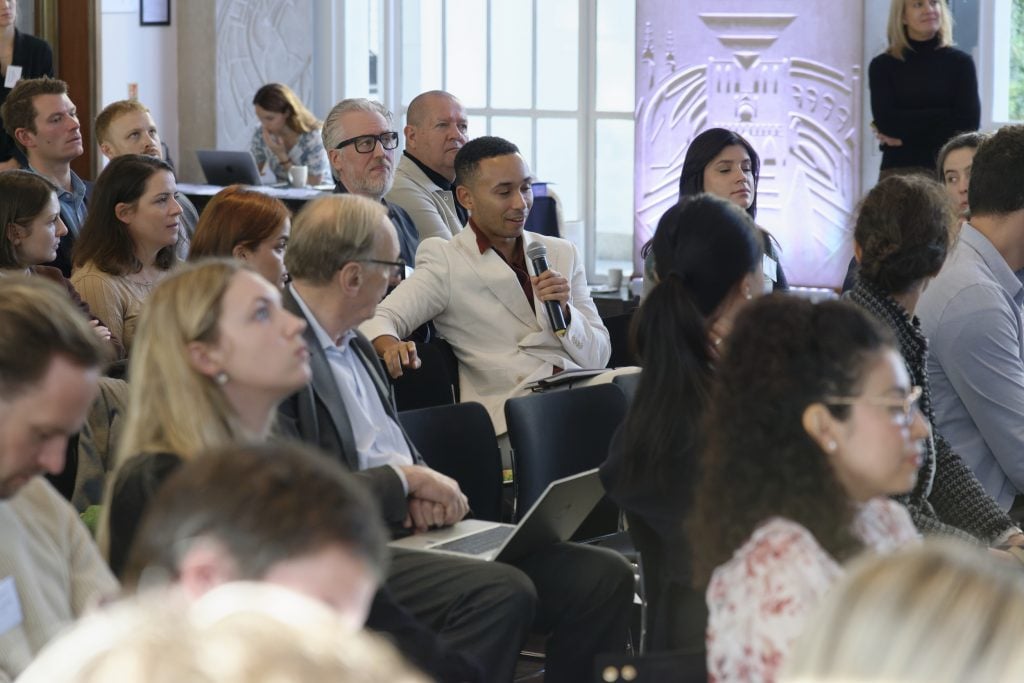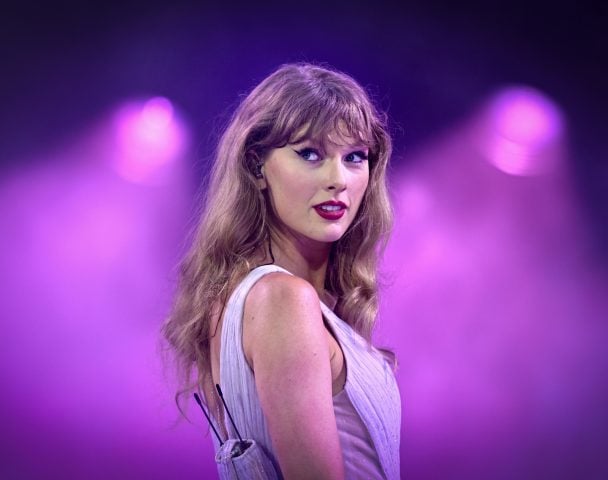During a busy Frieze Week in London, art-world professionals, policymakers, and artists gathered for the second edition of Art Market 2050, a half-day tech-focused conference hosted by the organizers of The Art Business Conference. Held at the Royal Institute of British Architects library, discussions ranged from the sustainability and ethics of Artificial Intelligence (A.I.) to the growing role of data and the blockchain within the trade.
The overriding sentiment from the day was perhaps best offered by Chris Bentley, Head of Fine Art and Specie, at AXA XL insurance, who noted that “we’re all completely convinced that the prize is enormous,” referring to the potential for technology-led growth within the art market. “We’ve just got to get out there and do it.”
Here are five other key takeaways from the event.
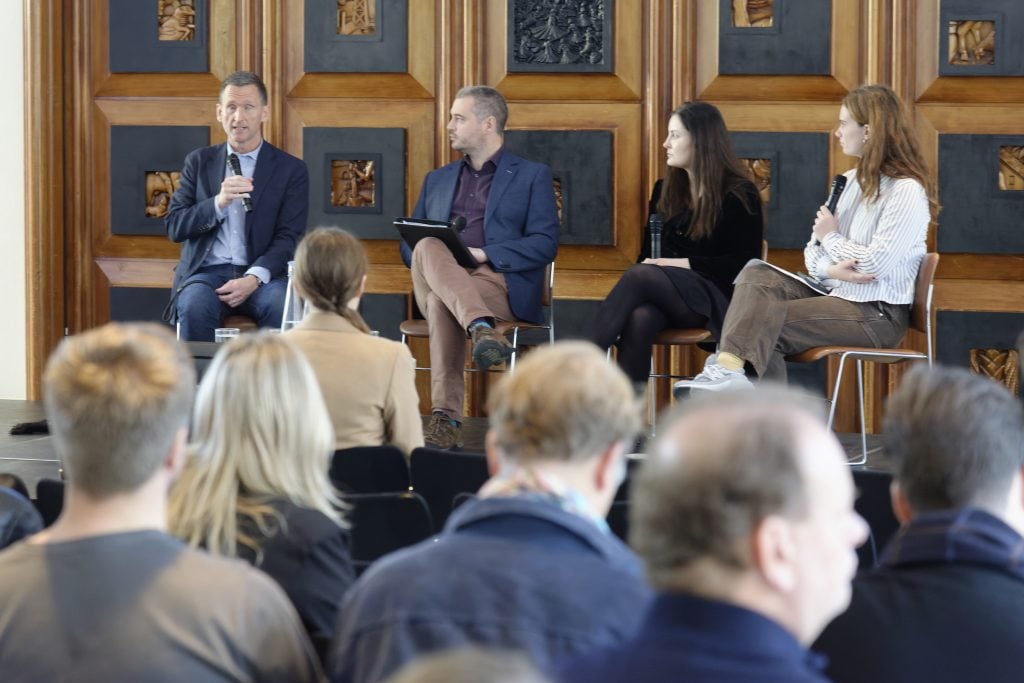
The Art Market 2050 conference.
1. It’s not wrong to have regulations, but they must be the right ones
“If we don’t legislate and regulate, it could have a chilling effect across the whole creative industry, an industry that currently contributes £126 billion ($164.2 billion) to the U.K.’s GDP, [which is] growing at twice the rate of the rest of the economy,” said Lord Holmes of Richmond, who is working on a bill related to A.I. and creativity in the UK.
Reminding the audience that the U.K., Europe, and the U.S. have already signed treaties outlining broad legislative principles, panelists throughout the day noted the need for greater interoperability across the jurisdictions, with a prioritization of clarity, consistency, and coherency.
That regulators are drawing up frameworks for issues that we do not yet fully understand, including cyber hacking and the impact of advancing technology on the environment, seemingly only complicated matters further.
2. There are “dirty secrets” around A.I.
While many are aware of the concerning levels of energy consumption and carbon footprints linked to technological advances, a panel on the “Challenges and Opportunities of A.I. for the Art Market” brought attention to the lesser-known issues of water usage.
“Even a simple conversation powered by A.I. can consume half a liter of water,” said Chris Eastham, a partner in the technology and data team at the law firm, Fieldfisher. “When you think about 100 million weekly users of Chat GPT, we are no longer talking about bottles of water, we are talking about [the] Great Lakes.” He went on to describe how a BBC correspondent had described this potential impact on the environment as the “dirty secret” of A.I.
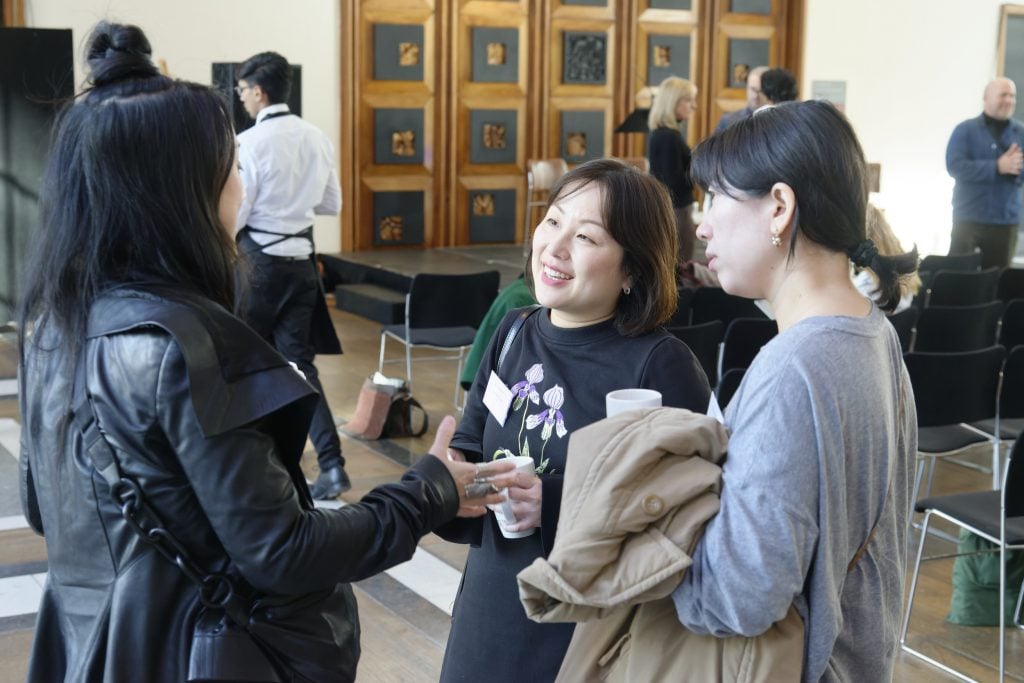
The Art Market 2050 conference.
3. There is fear of the unknown
It’s not news that the rapid adoption of A.I. has evoked mixed reactions, and the inclusion of several artists on the panels, including Ben Cullen Williams and Sougwen Chung, revealed the predicaments being felt by creative professionals.
“There’s an ethical quandary that many artists are grappling with right now,” said the artist Adelaide Damoah, in conversation with the Guardian journalist Lanre Bakare. “They’re excited about the possibilities and potential of A.I. but, at the same time, have fear that artists are being ripped off in order for this to happen.”
A member of the U.K.’s Design and Artists Copyright Society team in the audience told the room that the Department for Culture Media and Sport (DCMS) had reached out to arrange a roundtable with artists and creators, to address concerns. It was revealed that introducing A.I. ethics into the U.K.’s classrooms in the future was also being considered.
Rodrigo Esmela, Chief Commercial and Product Officer at the blockchain platform Arcual offered a reassuring point of view. “Fifteen years ago, people were hesitant about managing their finances through their phones,” he said. “But, today, it’s a no-brainer. The art world will experience a psychological transformation alongside this technical one.”
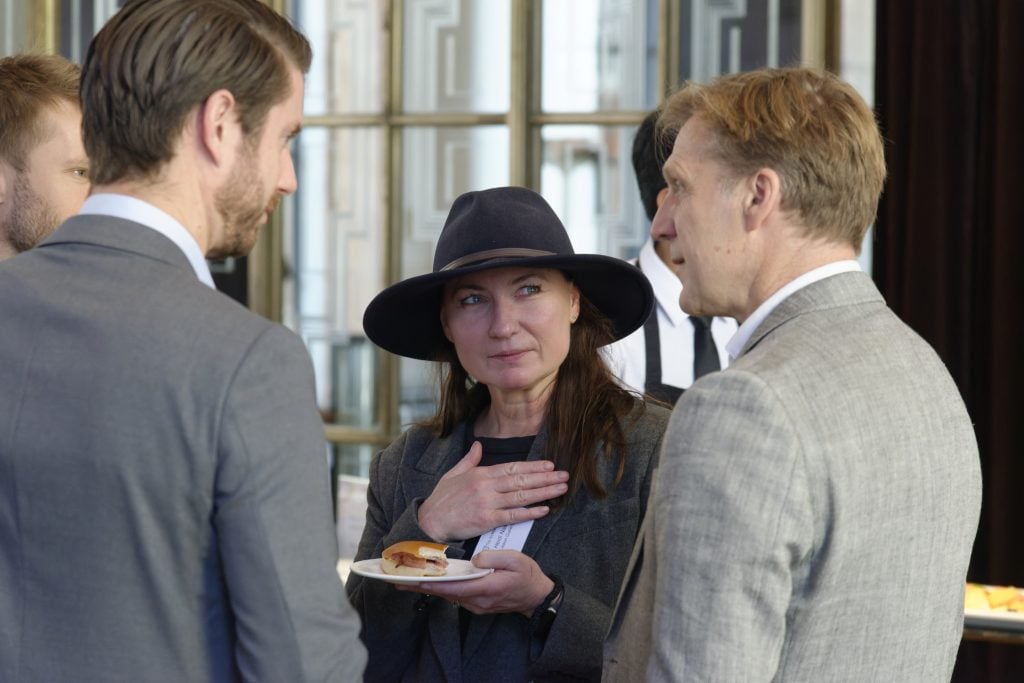
The Art Market 2050 conference.
4. The key to growth is data
It may feel as if we have more data now than ever before, but panelists noted the poor quality and inconsistency of much still being generated and used by the trade.
“We still receive shoeboxes filled with scraps of paper described as data,” said Harco van den Oever, CEO and Founder of Overstone Art Services, an art finance firm. “The challenge with that is that you’re trying to find a methodology to structure that data, before you can even begin to extract meaningful insights.”
There was some optimism among the panelists, however, and the general consensus was that opportunities for improvement—rather than correction—abound when it comes to data usage and analysis. Many noted that better shaping and use of data could improve the market in ways that go beyond transparency and efficiency, arguing that it could also drive game-changing growth.
“If you want to build a scalable business across multiple jurisdictions and regions globally, and you want to convince an institution to put significant capital behind an endeavor, you have to have scalable models, to be able to show how your financial capacity is structured,” van den Oever said. Others noted that the art market had been relatively static in terms of absolute size for the last 10 years and argued that data was one of the few things that could bring about a wholesale change.
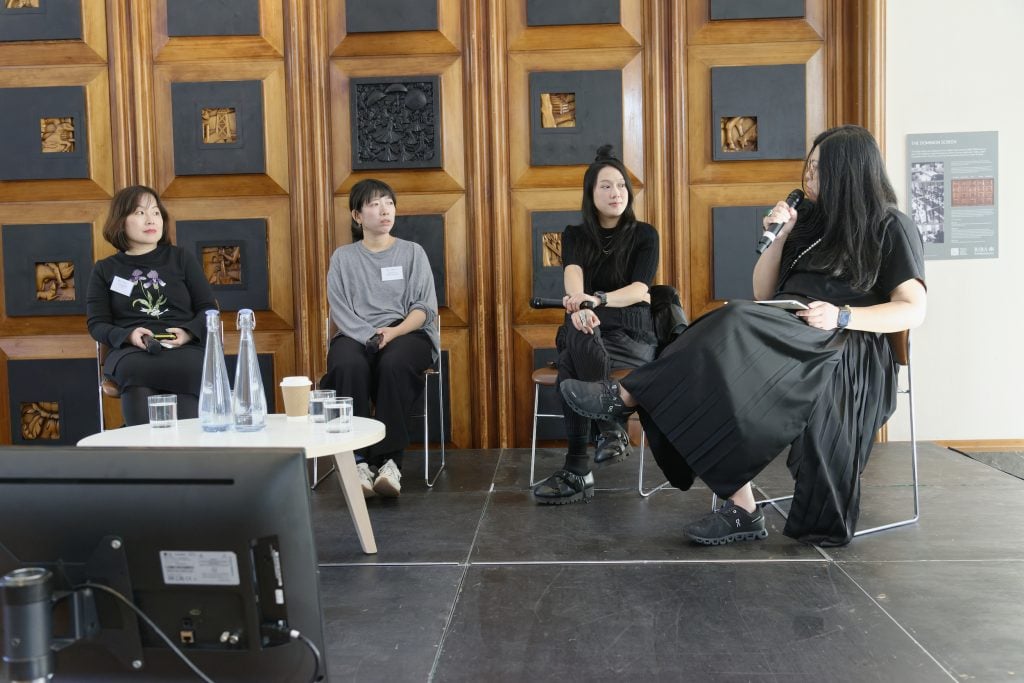
The Art Market 2050 conference.
5. With or without firewall: the new distinction
“I think in the future we probably won’t say artists from the east or west,” said Sammi Liu, founder and executive director of Tabula Rasa Gallery, during a panel on the role of technology in the practice of artists with Asian roots. “I think we will differentiate by internet with a firewall or without.”
The degree to which more traditional art market models could cope with the speed of advancing platforms was also debated. “There are questions we’re working through, including what’s the role of gallery in a blockchain system, [and] when [is] the blockchain is essentially designed to cut the middleman out?” added Liu.
Artnet was an official media partner of the Art Market 2050, London, October 11, 2024.
